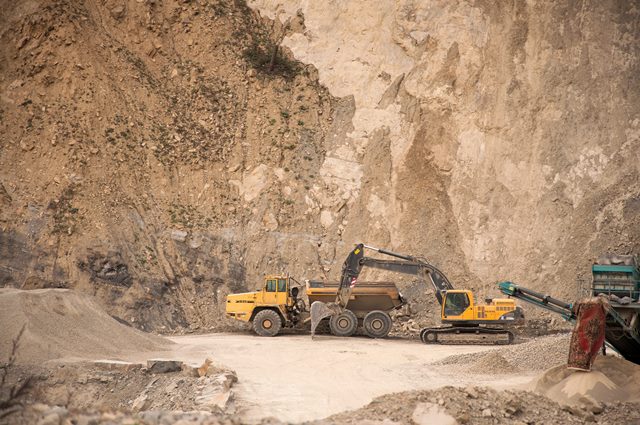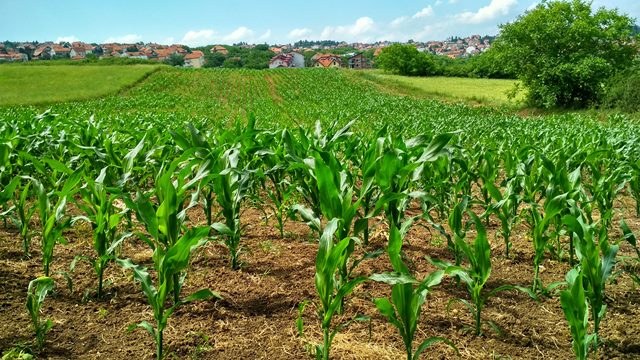Natural resources, such as minerals, oil, coal, and fertile land, have significantly impacted ancient and present-day African politics and economy. In many African countries, the discovery and exploitation of natural resources have often led to conflict and corruption. That’s because various groups compete for control and access to these resources. But through it all, the abundance or scarcity of certain natural resources has also had a major influence on the wealth and development of African nations.
For example, countries with a wealth of oil reserves have often experienced rapid economic growth, while those without such resources have struggled to develop their economies.

Additionally, the export of natural resources has often been a source of foreign exchange for African countries. The global demand for these resources has had a direct impact on the economies of many African nations.
That said, the impact of natural resources on African politics and economy has been complex and multifaceted. It continues to shape the development of the continent. Here, we’ll discuss the extent of the impact and role of natural resources in African politics and economy.
The Role of Natural Resources in African Politics and Economy
Africa is home to a wide range of natural resources, including oil, minerals, and agricultural products. All of these have the potential to drive economic growth and development. However, the exploitation and management of these resources have often been a source of conflict and controversy in African politics.
To start with, one of the most significant natural resources in Africa is oil. Many African countries, including Angola, Nigeria, and the Democratic Republic of Congo, have large oil reserves. And the oil industry is a major contributor to their economies.
However, the wealth generated by the oil industry has often been concentrated in the hands of a few elites. This has often led to widespread corruption and inequality. In addition, the extraction and transportation of oil can have negative environmental impacts, such as pollution and habitat destruction.
Minerals, such as gold, diamonds, and copper, are also important natural resources in Africa. These minerals are often found in areas with poor infrastructure and limited access to education and healthcare, leading to social and economic disparities.
Innovative Tech Solutions, Tailored for You
Our leading tech firm crafts custom software, web & mobile apps, designed with your unique needs in mind. Elevate your business with cutting-edge solutions no one else can offer.
Start Now
The Double-Edged Nature of Natural Resources
The extraction and export of minerals can generate significant wealth for a country, but they can also lead to conflict. This is because competing groups fight for control over the resources.
Furthermore, agricultural products, such as coffee, cocoa, and cotton, are also important natural resources in African communities. These products are often grown by smallholder farmers and play a significant role in the economies of many African countries.
Nevertheless, the export of agricultural products can be volatile and subject to price fluctuations. Thereby making it difficult for farmers to plan for the future. In addition, the production of these products can have negative environmental impacts, such as deforestation and soil erosion.
The exploitation and management of natural resources in Africa have often been controversial, as different groups compete to control and access these resources. In some cases, natural resource wealth has been used to finance conflict and undermine democratic processes.
In other cases, the wealth generated by natural resources has been used to fund development projects and improve the lives of ordinary people.
Read: The Cultural and Artistic Traditions of Africa (Music, Art, and Literature)
Types of Natural Resources Found in Africa
Africa is a vast and diverse continent with a wide range of natural resources that have played a significant role in its economic development and growth. These resources include renewable resources, such as timber and water, and nonrenewable resources, such as minerals and fossil fuels. Here are some of the types of natural resources found in Africa:
Minerals
Africa is rich in minerals, including gold, diamonds, platinum, copper, iron ore, coal, and oil. These minerals have been an important source of income for many African countries and have helped drive economic growth in the region.

Timber
Africa is home to a variety of forests, including tropical rainforests, savannas, and mangroves. These forests provide a range of resources, including timber used for construction, furniture, and other products.
Water
Water is a vital resource for any region, and Africa is no exception. The continent is home to a number of major rivers, including the Nile, Congo, and Niger, which provide water for irrigation, drinking, and other uses.
Agricultural Land
Seamless API Connectivity for Next-Level Integration
Unlock limitless possibilities by connecting your systems with a custom API built to perform flawlessly. Stand apart with our solutions that others simply can’t offer.
Get Started
Africa is home to some of the most fertile agricultural land in the world, and the continent is a major producer of different crops, including grains, fruits, and vegetables.
Renewable Energy
Africa has significant potential for developing renewable energy sources, including solar, wind, and hydroelectric power.
These sources could help to reduce the continent’s dependence on fossil fuels and contribute to a more sustainable future.
Africa’s natural resources will continue to be important for the continent’s future. It is also essential for Africa to manage and use them sustainably to maximize their potential benefits.
Read: The Impact of European Colonialism on African Societies and Culture
The Impact of Natural Resources on African States
The impact of natural resources on African states can be both positive and negative. However, the exploitation of natural resources can also have negative consequences for African states.
One of the major problems is that the profits from the sale of natural resources often do not benefit most of the population. Instead, they are often concentrated in the hands of a small group of elites, leading to income inequality and social unrest.
In addition, the extraction of natural resources can have negative environmental consequences, such as air and water pollution and deforestation. This can lead to long-term damage to the environment and the communities that depend on it.
Moreover, the reliance on natural resources can make African states vulnerable to fluctuations in global commodity prices. When prices are low, countries dependent on natural resource exports can experience economic downturns.
In conclusion, the impact of natural resources on African states can be both positive and negative. While natural resources can provide a source of income and economic growth, they can also lead to income inequality, environmental damage, and economic vulnerability. It is important for African states to carefully manage their natural resources in a way that benefits the majority of their populations and promotes sustainable development.

The Future of African Natural Resources
The future of African natural resources is likely to be shaped by a combination of global economic forces and domestic political considerations. One of the main trends in the global economy is the increasing demand for renewable energy sources.
This shift could potentially lead to a decrease in the demand for fossil fuels, such as oil and gas, which are major natural resources in many African countries.
At the same time, Africa is rich in other natural resources, such as minerals and timber, which are likely to continue to be in demand. However, the exploitation of these resources will also be subject to global trends, such as the increasing focus on sustainability and the use of ethical supply chains.
In terms of domestic politics, African governments will play a key role in shaping the future of their natural resources. Many African countries have a history of mismanagement and corruption in extracting and distributing natural resources.
Transform Business with Custom CRM & ERP Solutions
Elevate your operations with a CRM or ERP tailored for you. Let’s build the perfect solution that others can't replicate—crafted to match your business's needs like no other.
Get StartedTo ensure that the benefits of these resources are more widely shared, African governments will need to improve transparency and accountability in their resource sectors.
Hence, the future of African natural resources is likely to be influenced by global economic trends and domestic political considerations. It will be important for African governments to manage their resources in a way that benefits their populations and promotes sustainable development.
Read: The Role of Religion in African History

The Importance of Natural Resources to African Development
Natural resources play a crucial role in the development of any country, and this is especially true for African nations. These resources have the potential to drive economic growth, reduce poverty, and improve living standards for the people of Africa.
One of the most important natural resources in Africa is minerals. Mining these minerals has the potential to generate significant revenue for African countries, as well as create jobs and improve infrastructure.
Another important natural resource in Africa is oil. Many African countries, such as Nigeria and Angola, are major oil-producing countries. And the revenue generated from oil exports has played a significant role in their economic development. Oil production has also led to the development of other industries, such as refining and petrochemicals, which create additional jobs and economic opportunities.
Agricultural land is another important natural resource in Africa. The continent has vast areas of fertile land, which are suitable for growing a variety of crops. Agriculture is a major contributor to the economies of many African countries. And it provides employment for a large portion of the population.
In addition to food production, agriculture can also provide raw materials for other industries, such as textiles and cosmetics. The sustainable management and development of natural resources are crucial for the long-term economic growth of African countries.
However, it is important that these resources are used responsibly and sustainably – to ensure they are available for future generations. This includes measures such as conservation, responsible resource extraction, and implementing regulations to prevent these resources’ overuse or abuse.
Therefore, natural resources are an essential component of African development. The responsible and sustainable management of these resources has the potential to drive economic growth, reduce poverty, and improve living standards for the people of Africa.
Before you go…
Hey, thank you for reading this blog to the end. I hope it was helpful. Let me tell you a little bit about Nicholas Idoko Technologies. We help businesses and companies build an online presence by developing web, mobile, desktop, and blockchain applications.
We also help aspiring software developers and programmers learn the skills they need to have a successful career. Take your first step to becoming a programming boss by joining our Learn To Code academy today!
Be sure to contact us if you need more information or have any questions! We are readily available.











